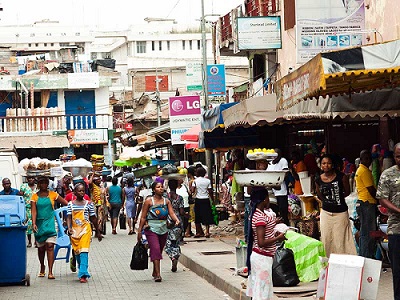
Ghana’s economy is projected to grow at 7.6 per cent this year ahead of the government target of 7.2 per cent, the World Bank has said.
The Lead Economist of the World Bank, Gerard Kambou who made the prediction during the launch of Africa’s Pulse on Monday, said the country’s growth would be influenced by the non-oil sectors such as agriculture, industry, mining and services.
Mr Kambou, who is one of the leading authors of the Africa’s Pulse, explained that Ghana’s growth this year, however, would fall short of the 8.1 recorded in 2017, which was largely influenced by oil.
The Africa’s Pulse, launched in Washington via video conference, is the bi-annual analysis of the state of African economies and issues shaping the continent’s economic future.
Particularly the current edition which is the 19th takes a closer look at how fragility is holding back countries back, and the role of digital transformation in eradicating poverty on the continent, stressing Africa needed to work hard to reduce growing conflicts and also invest massively in digital infrastructure to make broad services accessible to its citizens, especially rural dwellers.
The April Report estimated the Sub-Saharan Africa economic growth at 2.3 for 2018, which is 0.4 percentage points lower than the bank’s October 2018 estimate of 2.7 per cent and down from 2.5 per cent in 2017.
It said the economic growth remained below 2.8 per cent in 2019, it will have remained below three per cent since 2015,” the report said.
“This slower than-expected growth comes from both local and global domestic factors such as a volatile economic and financial environment, including trade protectionism, macroeconomic instability including poorly managed debt, inflation, and deficits, political and regulatory uncertainties,” the report said.
The report said growth in Sub-Saharan Africa was expected to recover to 2.8 per cent in 2019 supported by exports, private consumptions, a rebound in agriculture, and an increase in mining production and services in some countries.
Particularly on Nigeria, Africa’s biggest economy, the report said growth reached 1.9 per cent in 2019, up from 0.8 per cent in 2017, reflecting a modest pick-up in the non-oil economy.
It said South Africa which came out of recession in quarter three, but growth was subdued at 0.8 per cent over the year, as policy uncertainty held back investment.
“Angola, the region’s third largest economy, remained in recession, with growth falling sharply as oil production stayed weak,” the report said.
Commenting on Africa’s digital economy, the World Bank Chief Economist for Africa, Dr Albert Zeufack said, “Digital transformation can increase growth by nearly two percentage points per year and reduce poverty by nearly one percentage point per year in Sub-Saharan alone. This is a game-changer for Africa.”
By Kingsley Asare




